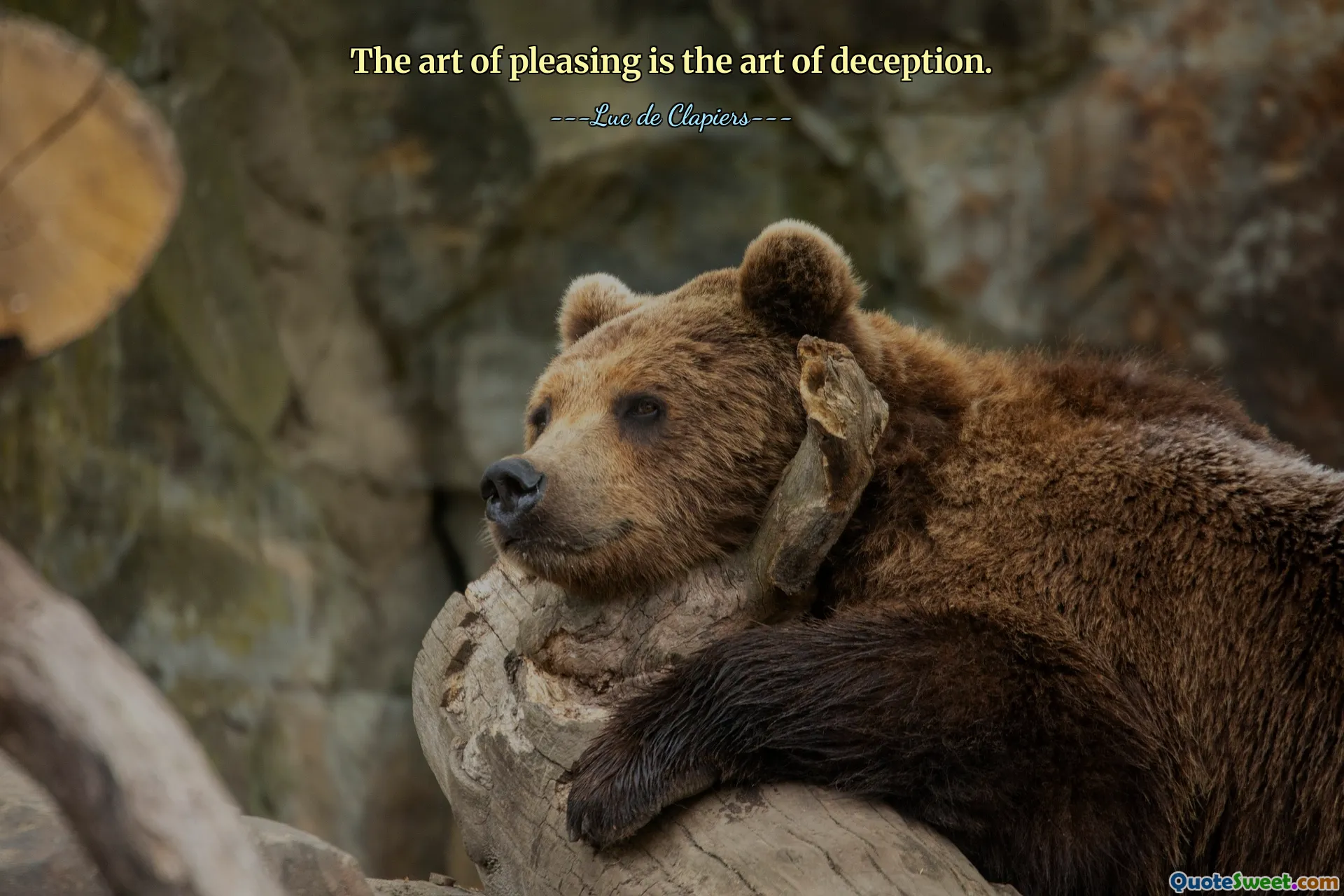
The art of pleasing is the art of deception.
This quote vividly encapsulates the subtlety involved in social interactions and the human tendency to present oneself in a manner that elicits favor or admiration. The act of pleasing often entails understanding others' preferences, expectations, and vulnerabilities, and tailoring one's behavior accordingly. While kindness and genuine regard can be the foundation of such interactions, there exists an underlying layer where appearances may be crafted, sometimes aligning more with strategic intent than authentic sentiment.
From a psychological perspective, this quote invites reflection on the balance between authenticity and social harmony. People often engage in impression management, which, in some cases, may border on deception—deliberate or unconscious—to maintain relationships, secure advantageous positions, or avoid conflict. The deception in artful pleasing can be considered subtle rather than malicious; it is part of navigating complex social landscapes where understanding unspoken rules can determine success or failure.
Philosophically, there's an intriguing tension here. On one hand, sincere interactions are ideal; on the other, the pragmatic need to please can lead to perceptions of insincerity, challenging notions of integrity and authenticity. The quote does not necessarily condemn such social strategies but highlights their pervasive role in human behavior.
In a broader sense, this insight underscores the importance of self-awareness. Recognizing when one's actions are genuinely expressive versus when they are tailored for effect can influence personal growth and interpersonal trust. Ultimately, while pleasing can sometimes involve deception, it also reflects humanity's complex endeavor to connect, empathize, and coexist smoothly within diverse social contexts.
---Luc de Clapiers---







